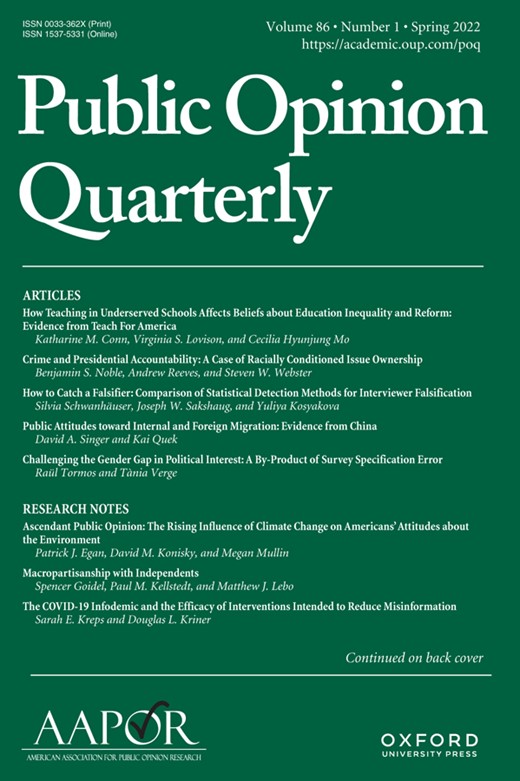-
Views
-
Cite
Cite
David A Singer, Kai Quek, Public Attitudes toward Internal and Foreign Migration: Evidence from China, Public Opinion Quarterly, Volume 86, Issue 1, Spring 2022, Pages 82–106, https://doi.org/10.1093/poq/nfab065
Close - Share Icon Share
Abstract
We explore attitudes toward internal and foreign migration in China using an original survey experiment. If labor-market competition drives attitudes, then residents will be opposed to migrants with comparable skill levels, regardless of migrant origin. If residents fear a dilution of national identity, then they will be more opposed to foreign than internal migration. We conduct a national survey in Mainland China, where we randomly assign respondents to answer questions about migrants with different skill levels and from either foreign countries or other provinces in China. We find that attitudes cleave over skill level, but the foreign-internal dimension is, on its own, not a salient cleavage in preferences. However, when considering high-skilled migrants, respondents are more supportive of foreign than internal migration; when considering low-skilled migrants, they are more opposed to foreign than internal migration. The results cast doubt on material explanations for attitudes toward migration and suggest a reevaluation of cultural threat arguments that privilege national borders.





